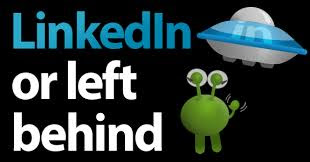Related: Getting What You Want Out of LinkedIn
After I got divorced I sold my house and was looking to buy another in a neighborhood close to my grandmother. My son was in elementary school and she offered to watch him after school each day until I got home from work. I found the perfect house a couple of streets over. I loved this house. It was beautiful, exactly the right size, in a great location and even had a bathroom connected to what would be my son's room, which was something he specifically requested. My offer was accepted and we went into escrow. A week later, the house I had sold fell out of escrow. My buyers were not pre-approved for their loan as they had claimed. So I had to stop escrow on the house I wanted so badly. And someone else bought it. I was so disappointed. At that point in my life, I wanted nothing more than to give my son stability and security. I had even already planned where the Christmas tree would go. But not long after, I realized there had been something better waiting for me.
 Two months later, with the house I was selling in escrow with verified pre-approved buyers, I started looking for a house again. The first house I looked at had just come on the market and I was the buyer to see it. It was directly across the street from my grandmother. The interior was stunning, with gorgeous upgrades, and the backyard was positioned so no neighboring house could see into it. It was better than the first house, closer to my grandmother, and less expensive. I happily bought it and moved us in a month later. We still live there, now. Now, it worked out, but there's more to the story. It actually worked out way better than I could have imagined, but it took about a year for me to really see it. And this was definitely a case of dodging a bullet.
Two months later, with the house I was selling in escrow with verified pre-approved buyers, I started looking for a house again. The first house I looked at had just come on the market and I was the buyer to see it. It was directly across the street from my grandmother. The interior was stunning, with gorgeous upgrades, and the backyard was positioned so no neighboring house could see into it. It was better than the first house, closer to my grandmother, and less expensive. I happily bought it and moved us in a month later. We still live there, now. Now, it worked out, but there's more to the story. It actually worked out way better than I could have imagined, but it took about a year for me to really see it. And this was definitely a case of dodging a bullet.Related: Networking and Online Dating: Get What You Want
During the time I found the first house, the one I lost, I met and became friends with a couple who had recently moved into the area from out of state. They were looking for a house and I recommended my realtor. She took them to see a house two doors down from the one I lost. And they bought it. Over the next year or so, as I got to know them better, I met some of their other friends. Most were very nice people. There were a few that were not. One in particular, that I didn't want around my son, began staying with them. The husband and this friend would drink heavily and run around the neighborhood late at night, like teenagers. They even came to my house late one night pounding on my door. I can only imagine how much worse it would have been if I lived almost next door. I wouldn't have felt safe with my son walking home there or playing outside. So even though that house had seemed so perfect, it turns out it would have been a nightmare.
We're all going through something where we aren't getting what we want. Whether it's a goal we want to achieve, a relationship with a person we'd like to know better, or job we'd like to have, the hard part is not knowing how it will turn out. Whether we'll get it, or not. All each of us can do is continue to try, continue to work toward what we want and have faith that things do work out for the best. Even when it doesn't seem like it at the time. It will happen, and when it does, it will be exactly what you need. Even if it isn't what you originally wanted.





















